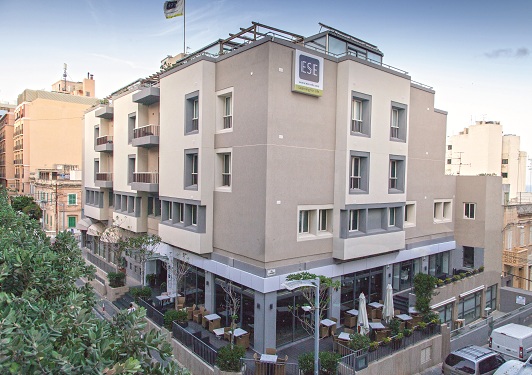Will Malta benefit from the UK leaving Erasmus by becoming a major training provider for European teachers? The short answer: it already is one.
An astonishing 15 out of the 35 accredited language schools on this multilingual archipelago offer at least one Erasmus teacher-training course, with one school – ETI in Valetta – welcoming 500 EU teachers a year.
Other schools offer Erasmus-funded courses, including the islands’ oldest language centre, NSTS, which offers refresher courses combining methodology with English improvement. Similar courses are offered from centres including AM, Maltalingua, ICQT and Irish-owned Alpha.
Erasmus funding is focused on a number of educational areas, such as English at primary and secondary education. Both are on offer from Gateway School of English, along with the use of technology in the classroom, which you can find at the University Language School and, together with CLIL courses, at EasySL, Link and Alpha.
CLIL, another Erasmus priority, is an obvious fit in a country with a bilingual school system. The main language of instruction is English in the private system and Maltese in state schools, but learning in a second language is a given. English Domain specialises in CLIL, as does ACE English, which also offers a course on teaching children with dyslexia.
European School of English (ESE) has teamed up with CLIL pioneers and UK training giant NILE Norwich to offer eight Erasmus courses, while International House Malta offers seven, plus an additional eight other IH World courses.
“The news that the UK will no longer participate directly in the Erasmus+ programme is hugely disappointing for all,” says Sean LeGault, CEO of ESE. “This exclusion will not just affect mobility training in the UK, but will impact all student mobilities in British universities and educational institutions. Thanks to the partnership with NILE, ESE can now offer our partner’s excellent teacher development programmes here in Malta, thus offering the opportunity for all trainees within the next Erasmus+ programme to participate in English-medium programmes in a warm and welcoming English-medium environment, bringing the best of the UK and Malta together.”
The sheer range of Erasmus-funded training courses, and the number of providers, is extraordinary for a country of just 442,000
inhabitants. The multilingual nature of the culture and the education system gives it an advantage as a major teacher training centre – but is there room to grow?





